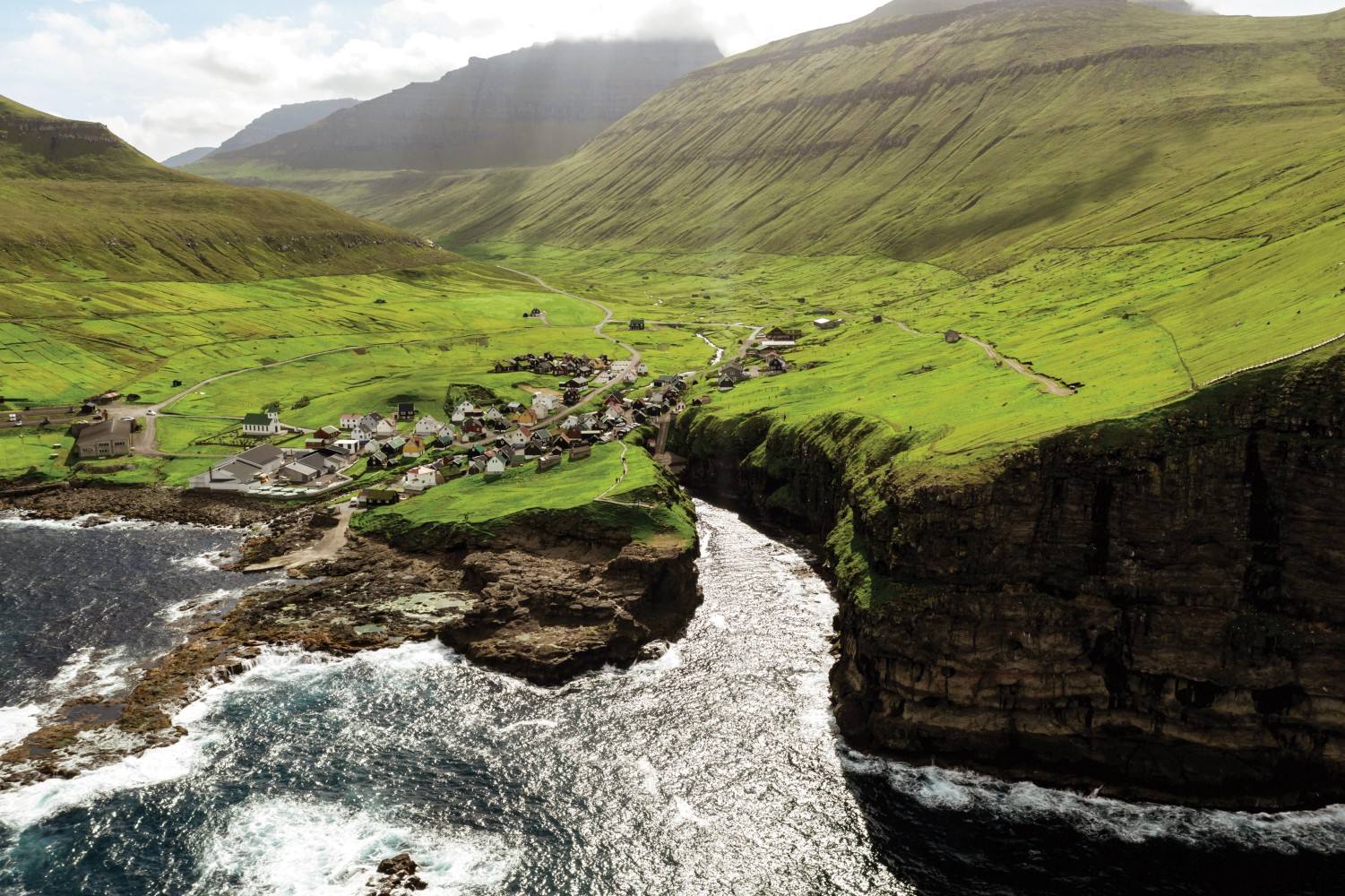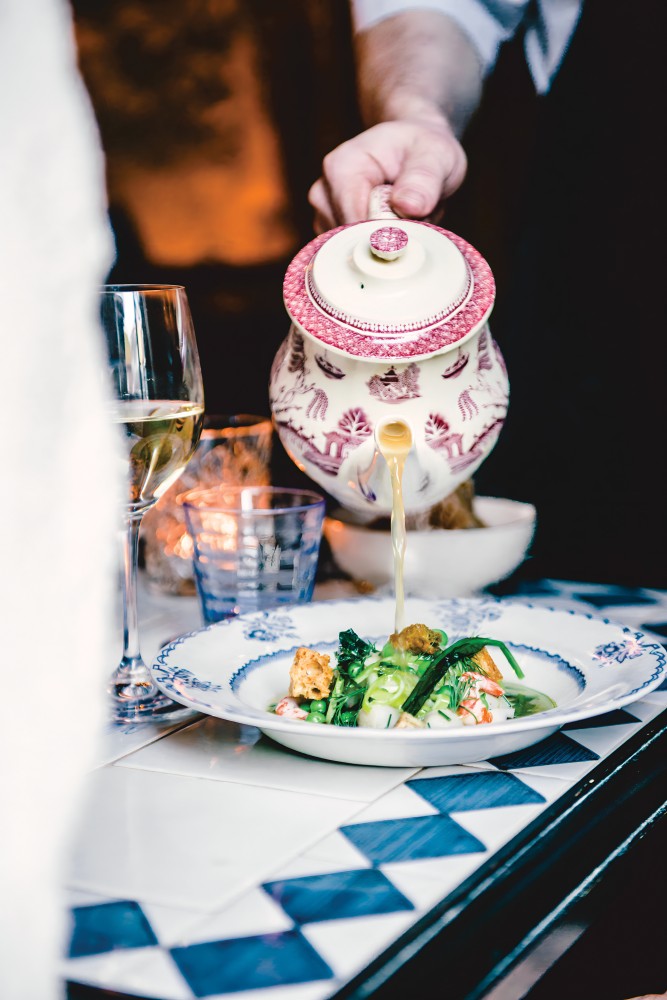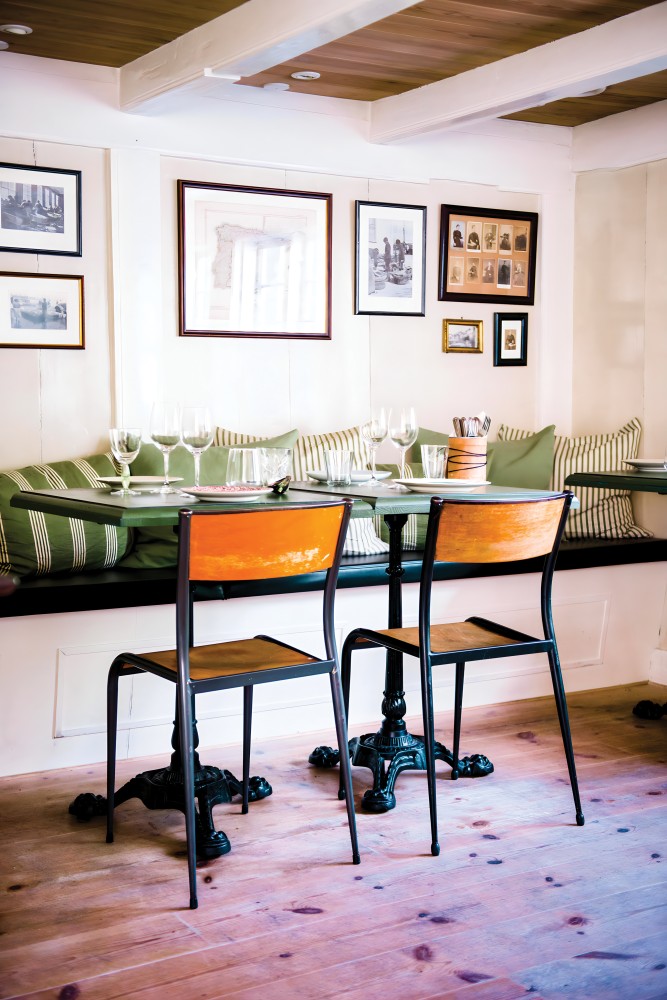The air smells like heather and sounds like a whisper. With my guide Rasmus Rosendahl, I hike along a primitive footpath to the ancient settlement where Bjørn keeps the last habitable wood cabin. Together with its flinty grass-roofed neighbors, a stone silo and barn, it makes a sort of living, outdoor museum; Rasmus calls it the “Viking village.” As he sets up an alfresco lunch of cured meats, bread and Champagne, I watch a cloud drift past the peak of cone-shaped Kolturshamar mountain.
This is only the beginning of the sort of adventure Rasmus offers through his company, Remót Travel. A native of this Nordic archipelago that saw off Irish monks, Vikings and Norwegians before ending up a self-governing satellite of Denmark, Rasmus built his business in the lull of the pandemic, as the tiny tourist board quietly pivoted to an emphasis on quality and sustainability—what they call the “Preservolution.”
Preservolutionaries don’t go in for ice hotels or other grand gestures involving glassy resorts or splendid cathedrals—the largest church in the Faroes, a timbered Modernist affair called Christianskirkjan, serves a town of 5,000 people in what resembles an updated Viking hall. Halfway to Iceland from Oslo, the Faroese don’t have Roman ruins to show off. Nor will you find a crowd here, beyond pleasure boaters at the marina in Tórshavn, the capital. At Hotel Føroyar, a luxury accommodation built into a hillside, visitors come for day-trips to lake-swim, bird-watch (puffins to be exact), or sail around stunning volcanic cliffs. Or, they simply sail to visit charming restaurants like the Barbara Fish House, which specializes in serving up delicious Blue Mussel plates. The Faroes immerse you in their wondrous character from the initial descent to the fjord-side runway at a delicate pace.








